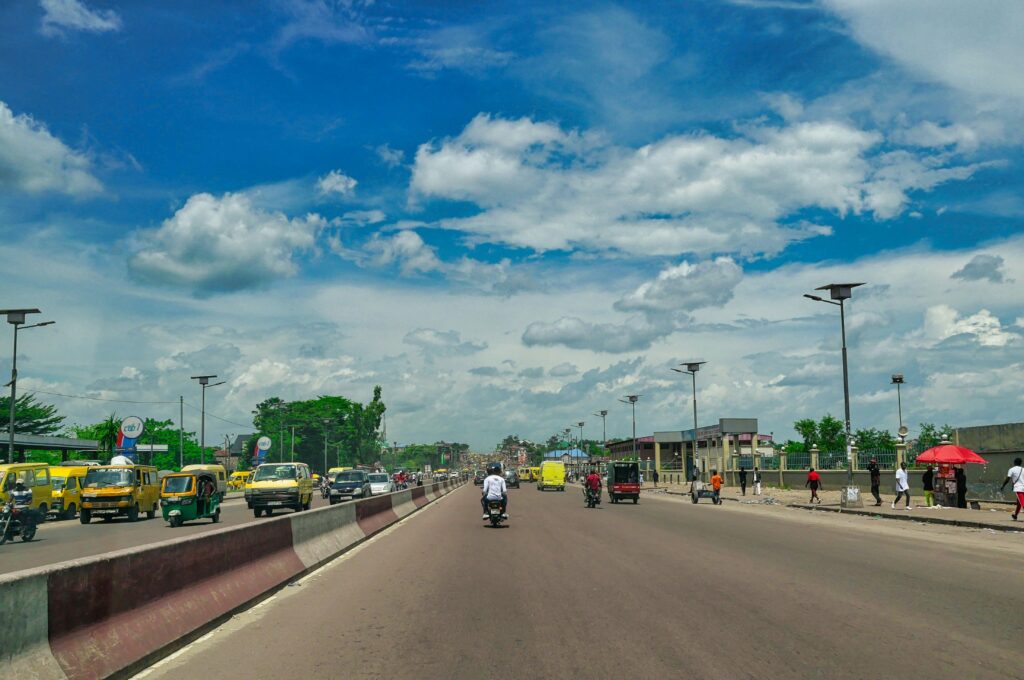- GCIEP launched three pilot projects to better understand traffic, waste management and urban drainage in Kinshasa, DRC.
- The Agence National d’Aménagement du Territoire plans to incorporate the findings of the pilots into government roadmaps for traffic, water and waste management.
- The success of the pilot projects opens the door for other small-scale, short-term GCIEP interventions in other countries.

Despite vast natural resources, the Democratic Republic of the Congo (DRC)’s history of conflict and political instability has left it as one of the poorest countries in the world. The World Bank estimates that almost three quarters of the country’s population live on less than $2.15 a day. As a result, many important aspects of urban infrastructure in DRC suffer from weak institutions, limited capacity and a lack of formal studies and analyses.
In late 2024, GCIEP was asked to work with DRC stakeholders to research three critical aspects of infrastructure in the capital of Kinshasa by the end of the commercial year, in March 2025. In response, GCIEP launched three pilot projects, especially designed for early-stage studies and interventions:
- Pilot A: Enhancing traffic flow and road safety along the Lumumba corridor, one of the major roads in the city.
- Pilot B: Mapping waste management stakeholders and systems to improve the waste ecosystem in the basin of the Funa River, which flows through Kinshasa.
- Pilot C: Assessing and improving urban drainage in the lower catchments of the Funa and Yolo rivers, both vulnerable to flooding.
To better understand these issues, GCIEP conducted stakeholder mapping and spatial data analysis of traffic flow and safety, waste management and urban drainage. This allowed the team to identify the major challenges as well as opportunities in these sectors.
This was achieved with the collaboration and assistance of local stakeholders, including the Cellule Infrastructure, the Cellule de Développement Urbain de Kinshasa and the Agence National d’Aménagement du Territoire (ANAT). ANAT proved especially valuable, helping to inform project design, facilitating focus groups and local buy-in, and attending the project’s final workshop. ANAT has expressed its intention to continue the project’s work and incorporate its findings into government roadmaps for traffic, water and waste management.
“The themes addressed are central priorities of ANAT. The efforts made in these pilot projects bring real added value to Kinshasa's urban planning.” Jonathan Manono, ANAT
The success of these pilot projects – the first time GCIEP has deployed such an intervention – opens the door for other small-scale, short-term projects in other countries, potentially improving the range of support GCIEP is able to offer partner governments.
The UK’s Green Cities, Infrastructure and Energy Programme is tackling climate change and extreme poverty by accelerating the delivery of sustainable green cities and climate-resilient infrastructure.
Published
28/05/25
